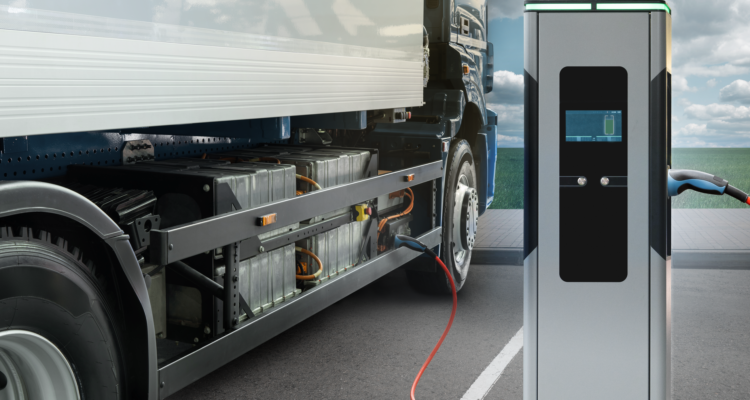According to new research from Element Energy, Electric Heavy Goods Vehicles (eHGVs) are poised to become more economical than their diesel counterparts in the coming years. Coupled with recent data from e-mobility service provider ZapMap, which shows that there are now more than 920,000 fully electric cars on UK roads and a further 560,000 plug-in hybrids, it’s safe to say that the UK’s e-mobility transformation is officially in full swing.
Easily accessible charging infrastructure is a prerequisite for the mass electrification of vehicles, meaning the expansion of charging station infrastructure is vital to meet growing demand. The UK power grid still has a long road to travel before it is ready to accommodate eHGVs that rely on ‘opportunity charging’; meaning vehicles that require charging at random locations along their journey, as and when needed. Opportunity charging, especially for long-haul trucks, requires widespread high-power charging infrastructure along major transportation routes; and while the UK government has been making significant strides in promoting the adoption of electric vehicles, its long-distance charging concept is a long way from being materialised.
However, Element Energy’s report notes that over half of British eHGVs will only require charging at their home depots, reducing the need for widespread public charging infrastructure. Those invested in transitioning to an eHGV fleet should therefore not be dismayed by the government’s stagnated plan to modernise the grid, as depot charging for vehicles with pre-determined routes are now entirely viable. Plus, as technology advances and economies of scale come into play, the initial higher investment in electric vehicles is predicted to be offset by lower operating and maintenance costs.
Smart solutions
Adopting eHGVs is now also easier and requires less upfront investment thanks to new operational leasing models that are available on the market. This type of model can provide an attractive option for owners looking to outsource the design and construction of eHGV charging infrastructure. Energy company Vattenfall, for example, provides a unique operational lease through which the specialist takes full responsibility for the design, construction and operation of all eHGV infrastructure on behalf of its clients, reducing risks for transport and logistics businesses by owning and operating the infrastructure on their behalf.
What’s more, Vattenfall also provides investment capital for new or existing electrical infrastructure. For businesses with limited capital of large infrastructure plans, working with a specialised ‘power partner’ can free up capital expenditure (CAPEX) and remove the need for any upfront costs, replacing them with predicable operational costs (OPEX). Thus, businesses can move towards net zero sooner and gain distinct cashflow advantages.
Gary Jacobs, a Business Developer at Vattenfall Network Solutions, comments: “As the transportation sector embraces electrification, businesses stand to gain immensely from increased efficiencies. The shift to electric HGVs is just one example of the ways companies can reduce energy consumption by replacing aging, inefficient and polluting infrastructure with cleaner, more reliable electrical systems – and Vattenfall is here to help UK companies with the finance and expertise to accelerate electrification however we can.”
A straight road to net-zero
The UK government has decided not to take a slow route to net-zero and has set an ambitious goal: by 2050, the use of diesel trucks must become history to achieve its net-zero climate goal. The year 2035 is the deadline for phasing out sales of all new ‘non-zero emission’ trucks up to 26 tonnes, and 2040 for those above.
Combined with the fact that electric trucks are on the brink of economic viability for city, urban, and regional deliveries; and that their total cost of ownership – including purchase price, energy, and maintenance costs – are set to outpace diesel (even under the most conservative estimates regarding fuel and battery prices), there has never been a better time to transition to eHGVs.



















